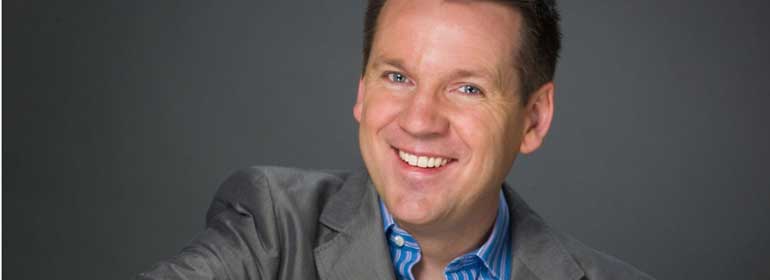We must expect the Broadcasting Authority of Ireland (BAI) to uphold all complaints about mentions of LGBT issues on our airwaves that do not include a pro-LGBT opinion, says Brian Finnegan.
The latest report from the Broadcasting Authority of Ireland (BAI), published on August 14, rejected several complaints, including four from members of the public who were offended by transgender representation in the RTÉ Two comedy, The Centre. The BAI concluded that “the piece was in an established ‘broad-comedy’ tradition characterised by a style of humour that is unsubtle and treats characters as caricatures.”
The committee also rejected a complaint from a gay man who contributed to The Niall Boylan Show on 4FM, discussing the Irish Blood Transfusion Service (IBTS) ban on gay men giving blood in Ireland. When the contributor brought up the subject of bisexual men in the context of the ban, Boylan said: “Will you stop mentioning bisexuals, tri-sexuals and all sort of sexual. Let’s stick to the facts.” The contributor made his complaint to the BAI under two headings, ‘fairness, objectivity and impartiality in current and news affairs’ and ‘harm and offense’.
In rejecting his complaint, the BAI said: “the programme is an audience-driven phone-in show and is characterised by fast-moving and robust exchanges between callers to the programme or between the programme presenter and callers.” They concluded that they “did not agree with the complainant that the broadcaster did not show due care in the treatment of the complainant or that the treatment of the current affairs topic under discussion lacked fairness, objectivity or impartiality…”
Of the 14 complaints submitted to the BAI so far this year, only one was upheld. This was from a man called Dónal O’Sullivan-Latchford, who wrote to the BAI on behalf of the Family and Media Association (a Catholic lobbying organisation based in a suburban house in south Dublin) about an item on RTÉ Radio’s Derek Mooney show last January in which guests discussed the number of civil partnerships that took place since the introduction of legislation in 2011. Mooney’s guests were the newsreader, Michael Murphy and Tiernan Brady, who represented the Gay and Lesbian Equality Network (GLEN). The item was a positive discussion about gay couples getting hitched, with some reference to the British same-sex marriage legislation and speculation about the introduction of such legislation in Ireland.
As part of the discussion, Mooney said: “I hope you do get gay marriage…I hope it does come in”.
O’Sullivan-Latchford argued that gay marriage is a matter of national debate ahead of an upcoming referendum and that this debate should not be pre-empted by an unbalanced programme or by the direct expression of a personal opinion on the matter by the presenter.
Although a same-sex marriage referendum had not been announced at the time of broadcast and the item was a lifestyle piece rather than a political debate about a referendum, the BAI upheld O’Sullivan-Latchford’s complaint, saying that the discussion of same-sex marriage “constituted current affairs content on an issue that was of current public debate and controversy”, and that BAI code’s general requirements for fairness, objectivity and impartiality in current affairs “had not been met”.
They said that this element of the discussion was not “fair, objective or impartial”, and that Mooney’s statement entailed “the articulation of a partisan position on a matter of current affairs.” (He’s a gay presenter who voiced his desire for gay marriage.)
So, a straight presenter can voice an opinion that rejects the relevance of bisexuals in a current affairs debate that is about them and that’s fine. A sitcom can deeply offend trans members the viewing public and that’s fine. A gay presenter voices his desire for gay marriage and that’s not fine. In fact, it’s partisan.
I use the word ‘desire’ here deliberately. Derek Mooney said ‘I hope you do get gay marriage…
I hope it does come in.” This is hardly political grandstanding; it’s a self-evident personal opinion. He didn’t say it must come in. But Mr O’Sullivan-Latchford knows how popular Derek Mooney is with his middle-Ireland listeners, so he set out to stop him airing his hopes, and anyone else airing their hopes, with the worry that such broadcasting might persuade voters in the direction of a yes vote. And the BAI facilitated his tactic, creating a situation in which all conversation about same-sex marriage on the airwaves will have to include commentators who seek to deny gay people equal rights, for whatever reason.
I have read the BAI’s ruling on the Derek Mooney Show closely and I still can’t make sense of it. The BAI was set up so that “the democratic values enshrined in the Constitution, especially those relating to rightful liberty of expression, are upheld”, so I know the decision wasn’t about serving a partisan belief.
I also know that I no longer have the ‘rightful liberty’ to go on national radio to say I hope gay marriage will be introduced, unless someone is also given the chance to say it shouldn’t.
However, I also have the liberty to complain to the BAI any time I hear or see someone with a negative view on same-sex marriage on our airwaves without someone being there to say why same-sex marriage must be allowed. I have the liberty to complain when someone stands up for continuing the IBTS blood ban, without someone there to say it unfairly discriminates against gay and bisexual men. I have the liberty to complain any time I see even a hint of support on our airwaves for Section 37 of the Employment Equality Act without someone there to say that it degrades, debases and demeans LGBT employees of religious-run organisations, prevents them from exercising their rights as Irish citizens, and it should be removed the statute immediately.
And if I do complain, I fully expect the BAI to uphold my complaint.
© 2014 GCN (Gay Community News). All rights reserved.
